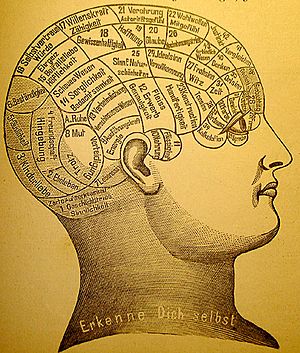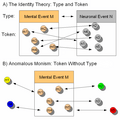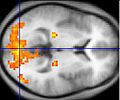Philosophy of mind facts for kids

The Philosophy of mind is a part of philosophy that explores how our mind works. It asks big questions about what the mind is and how it connects to our body and the world around us. This field also looks at consciousness, which is our ability to be aware of ourselves and our surroundings. Scientists in psychology and physics also study these ideas.
Contents
What is the Philosophy of Mind?
The philosophy of mind tries to understand what the mind really is. It asks how our thoughts, feelings, and experiences come to be. It also wonders how our mind relates to our physical body, especially our brain. Think about it: when you feel happy, is that just a chemical reaction in your brain, or is it something more?
Mind and Body: A Big Question
One of the oldest and most important questions in the philosophy of mind is about the connection between the mind and the body.
Is the Mind Separate from the Body?
Some philosophers believe the mind is completely separate from the body. This idea is called dualism. A famous thinker named René Descartes thought the mind (or soul) was a non-physical thing. He believed it could exist even without a body. He imagined the mind interacting with the body through a tiny part of the brain called the pineal gland.
Is the Mind Part of the Body?
Other philosophers believe the mind is not separate at all. This idea is called monism. They think the mind is simply what the brain does. So, your thoughts and feelings are just activities happening in your brain. For them, there's no "ghost in the machine." Your mind is your brain.
What is Consciousness?
Consciousness is a big part of the philosophy of mind. It's about being aware of yourself and the world around you.
What Does it Feel Like?
Think about what it's like to see the color red, or to feel pain. These are called "qualia" (say: KWAH-lee-uh). They are the raw, subjective experiences we have. Philosophers wonder how our brain, which is just a physical thing, can create these unique feelings.
Is Consciousness Just Brain Activity?
Many scientists believe consciousness comes entirely from the brain. They study how different parts of the brain light up when we think or feel. But philosophers still debate if brain activity alone can fully explain the feeling of being conscious.
How Does the Brain Fit In?
Modern science, especially neuroscience, has given us many clues about the mind.
Studying the Brain
Tools like fMRI allow scientists to see which parts of the brain are active when people perform tasks. This helps us understand how different brain areas are linked to specific thoughts or actions. For example, we know that certain parts of the brain are involved in language or memory.
Brain and Mind Connection
While we learn a lot about the brain, the philosophy of mind still asks deeper questions. Even if we know which brain parts are active, does that fully explain *why* we have thoughts or feelings? It's like knowing how a computer works, but still wondering how it creates a virtual world.
Why is This Important?
Understanding the philosophy of mind helps us in many ways.
Understanding Ourselves
It helps us think about what it means to be human. What makes us unique? Are we just complex machines, or is there something more to our minds?
Thinking About Artificial Intelligence
As AI becomes more advanced, these questions become even more important. Can a computer ever truly have a mind or be conscious? If an AI can talk and act like a human, does that mean it thinks and feels like one? The philosophy of mind helps us explore these ideas.
Images for kids
-
René Descartes' drawing of mind/body dualism.
-
A portrait of René Descartes by Frans Hals (1648).
-
John Searle is a very important philosopher of mind. He supports the idea of biological naturalism.
-
Since the 1980s, advanced brain scans like fMRI (shown above) have helped us learn more about how the human brain works. This has shed light on old philosophical questions.
See also
 In Spanish: Filosofía de la mente para niños
In Spanish: Filosofía de la mente para niños
 | Frances Mary Albrier |
 | Whitney Young |
 | Muhammad Ali |






